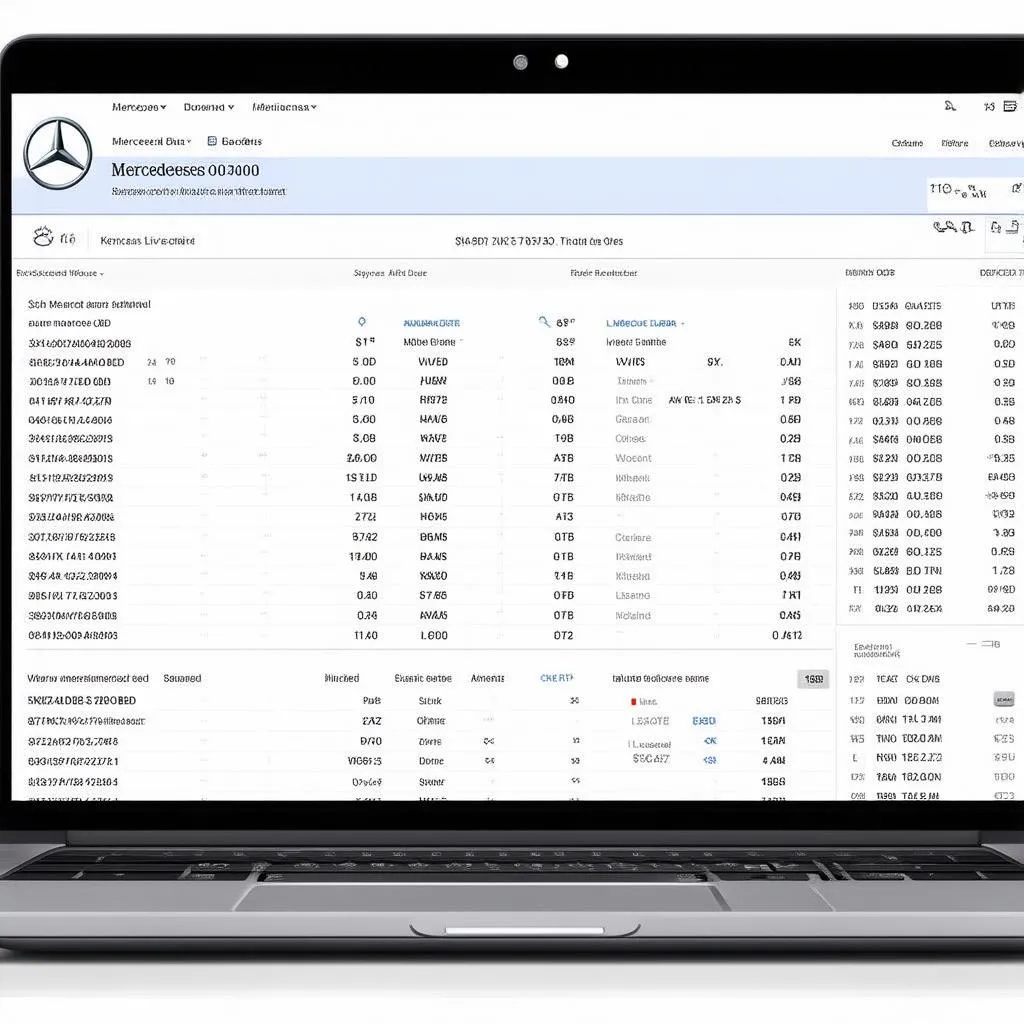A malfunctioning air conditioning system in your Mercedes Benz can transform a luxurious drive into an uncomfortable ordeal. Whether it’s a sweltering summer day or a chilly winter morning, a properly functioning AC is essential. While it’s advisable to consult a professional for complex issues, some problems can be diagnosed and even fixed with a bit of guidance. This comprehensive guide will delve into the common reasons behind Mercedes Benz air conditioning problems and provide practical steps on how to potentially fix them yourself.
Understanding the Culprit: Common Causes of AC Issues
Before diving into solutions, it’s crucial to identify the root cause of your AC woes.
- Refrigerant Leak: One of the most prevalent culprits is a refrigerant leak. Refrigerant is the lifeblood of your AC system, and even a small leak can significantly impact its cooling capacity.
- Faulty Compressor: The compressor is the heart of your AC, responsible for pressurizing and circulating the refrigerant. A failing compressor can lead to inadequate cooling or a complete system shutdown.
- Electrical Issues: Electrical problems, such as a blown fuse, a malfunctioning AC control unit, or wiring issues, can disrupt the AC system’s operation.
- Clogged Cabin Air Filter: A severely clogged cabin air filter restricts airflow into the cabin, leading to weak airflow and reduced cooling efficiency.
- Faulty Blower Motor: The blower motor pushes the cool air into your car’s interior. If the blower motor fails, you might experience little to no airflow.
refrigerant-leak-car-ac|refrigerant leak|A close-up photo of a refrigerant leak in a car AC system, with visible dye and tools around.
Recognizing the Signs: Symptoms of a Faulty AC System
- Weak or No Airflow: If you notice a significant decrease in the air coming from your vents, it could indicate a problem with the blower motor, a clogged cabin air filter, or a refrigerant leak.
- Warm Air Instead of Cold: This is a telltale sign of an issue with the refrigerant, compressor, or electrical components.
- Unusual Noises: Grinding, squealing, or clicking sounds emanating from the AC system when you turn it on could point to a failing compressor or other mechanical problems.
- Foul Odors: A musty smell coming from the vents often suggests mold or mildew growth in the evaporator case, usually due to a blocked drain.
car-ac-blowing-hot-air|car ac blowing hot air|A photo of a car’s dashboard with the AC on full blast but the temperature gauge showing high temperature, indicating hot air blowing.
Gearing Up: Tools and Equipment for AC Repair
- Refrigerant Leak Detector: This handy tool helps pinpoint refrigerant leaks, allowing for targeted repairs.
- AC Manifold Gauge Set: Used to measure the pressure of the refrigerant in the system, aiding in diagnosis and recharge.
- Refrigerant (if necessary): Ensure you use the correct type and amount of refrigerant specified for your Mercedes model.
- Protective Gear: Always wear safety glasses and gloves when working with refrigerants.
- Basic Hand Tools: Screwdrivers, pliers, wrenches, etc., might be necessary depending on the repair.
car-ac-repair-tools|car ac repair tools|A photo of an assortment of tools used for car AC repair, including gauges, wrenches, and a refrigerant leak detector.
Troubleshooting and Repair: A Step-by-Step Guide
Disclaimer: While these steps provide a general guide, always refer to your Mercedes Benz owner’s manual for model-specific instructions and safety precautions. If you’re uncomfortable performing these tasks, it’s best to consult a qualified mechanic.
- Check the Cabin Air Filter: Locate and inspect the cabin air filter. If it’s dirty or clogged, replace it with a new one.
- Inspect for Refrigerant Leaks: Use a refrigerant leak detector to check for leaks around the compressor, hoses, and connections. If a leak is detected, it needs to be repaired by a professional.
- Check the Fuses: Consult your owner’s manual to locate the AC system fuses and check if any are blown. Replace blown fuses with ones of the correct amperage.


